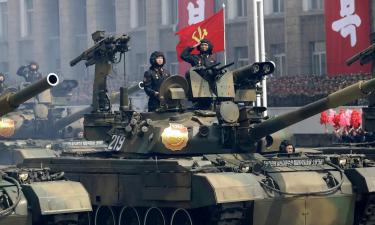More evidence of NATO war crimes in Yugoslavia
100 workers who had come into contact with areas where NATO had deployed depleted uranium (DU) bombs have been tested. Of these, nine have been found to have the highly carcinogenic chemical Piralen in their blood while a further 15 have been sent for further analyses.
The workers had been sent to clear up the Bor mine after NATO had deployed DU weapons against it in 1999. The cases have been confirmed by a doctor working for the Institute for Workplace medicine and Radiological protection.
Snezana Milacic, spokesperson for the group carrying out the analyses, declared that the nine workers showed evidence of mutagenic chemicals in the blood as a consequence of their contact with Piralen. The only explanation that can be found for this prevalence is the radiation released by NATO’s DU weapons.
Tens of soldiers who came into contact with DU weaponry developed different types of cancers, the most common being leukaemia. This Balkans War Syndrome was much talked about during the year 2000 as the first cases started to appear but since then the issue has been sidelined after NATO declared that DU weapons were not radioactive.
Depleted Uranium is used to tip shells and bombs to give them more penetration and effectiveness.
The Geneva Convention states that munitions deployed in a theatre of war must be restricted to the battlefield and their effect must not outlast the conflict. Failure to respect these norms constitutes one of the infractions which constitute war crimes.
Timothy BANCROFT-HINCHEY PRAVDA.Ru
Subscribe to Pravda.Ru Telegram channel, Facebook, RSS!





